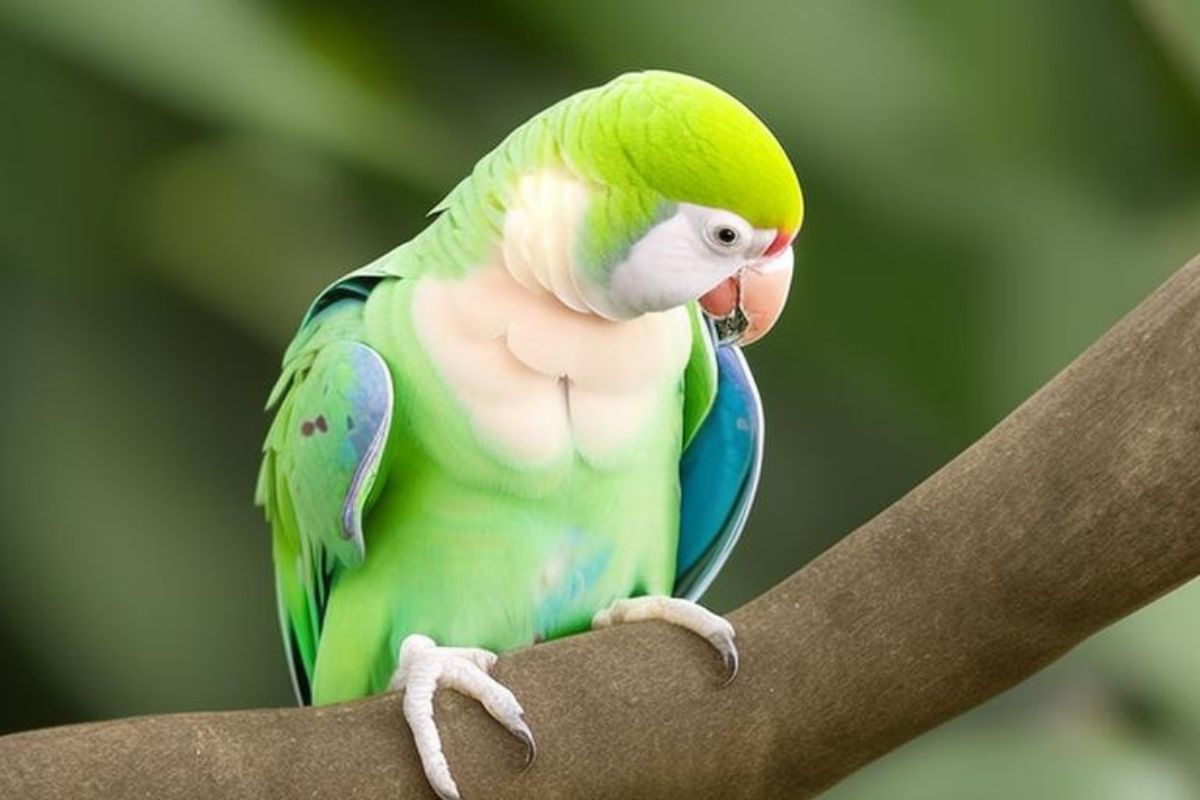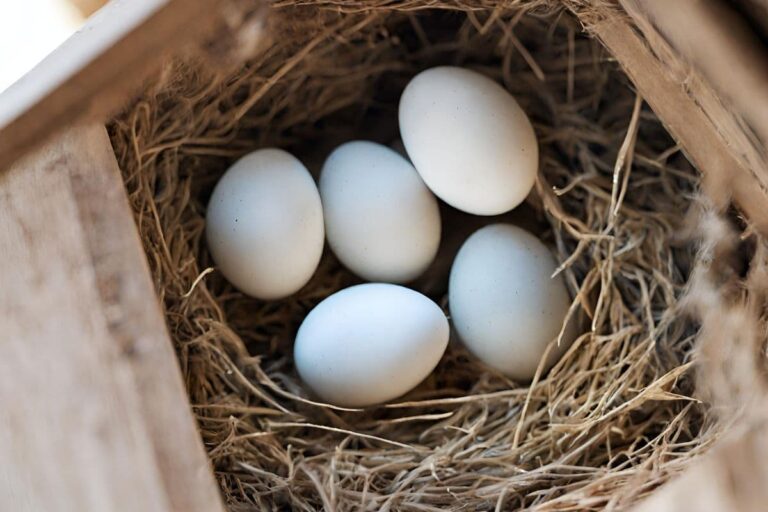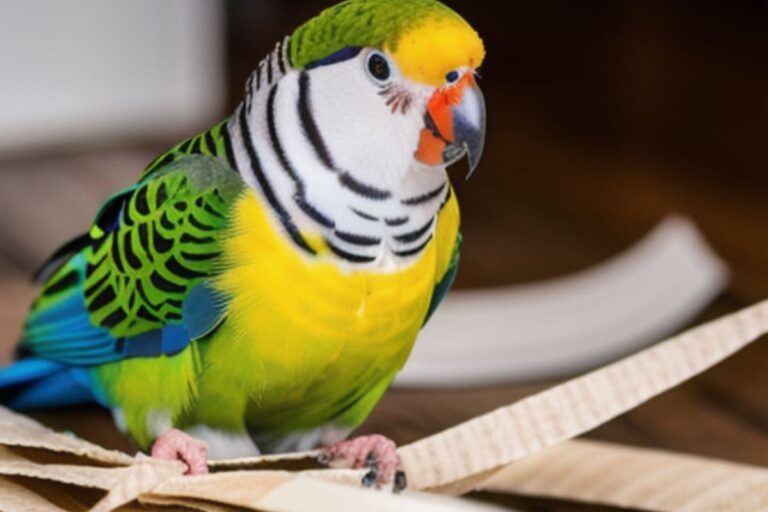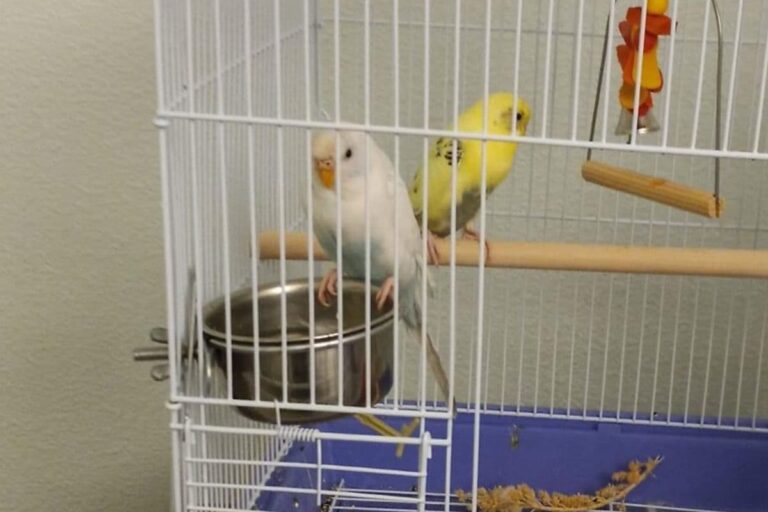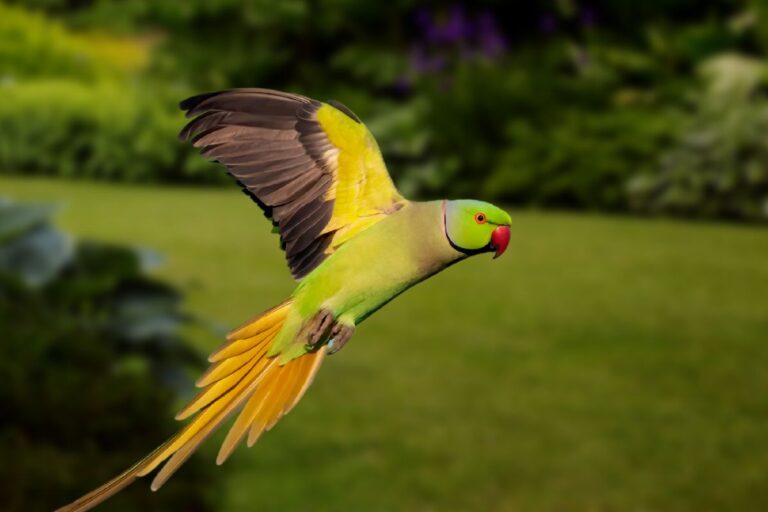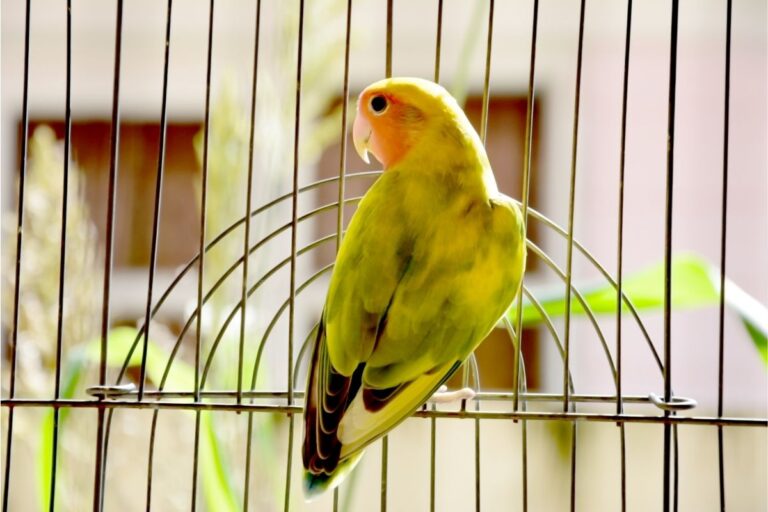How to Tell If My Parakeet is Pregnant
Disclosure: The opinions expressed in this post are my own. This post may also contain affiliate links, which means that I will receive a commission if you decide to purchase through my links, at no additional cost to you. As an Amazon Associate, I earn from qualifying purchases.
Knowing the signs of pregnancy in your parakeet can help you provide the best care for her and her potential babies. In order to recognize that your parakeet is pregnant, there are usually physical and behavioural patterns typical of pregnant birds, that can be observed.
If you’re not sure whether your feathered friend is expecting, here are some steps you can take to correctly determine whether or not your parakeet is pregnant, and what you can do to ensure her health and wellbeing.
Signs That Your Parakeet is Pregnant
It can be difficult to tell if your parakeet is pregnant, but there are a few signs you can look for. From gathering nesting materials to changes in eating habits and physical appearance, these clues can help you determine if your bird is expecting. Additionally, understanding the length of a budgie’s pregnancy and the fact that female birds do not have menstrual cycles can also provide insight into whether or not your parakeet is pregnant. Let’s take a look at some of the most common signs that your parakeet is pregnant.
1. Changes in Physical Appearance
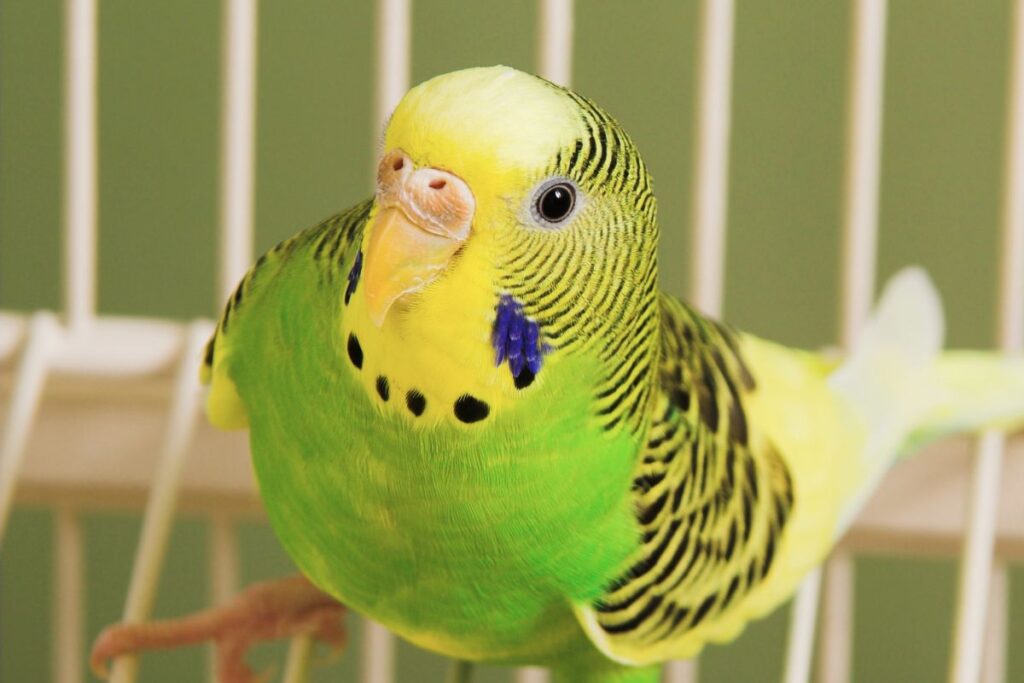
One of the most obvious signs that your parakeet is pregnant is a change in her physical appearance. As she nears the end of her pregnancy (around the 3rd week and after), you may notice that your bird’s abdomen appears larger and rounder than usual. You may also notice that your parakeet’s abdomen is softer than usual. Additionally, her feathers may appear fluffed up and she may look heavier overall. You may also notice that your parakeet’s cere (the area around her nostrils) may become darker in color too.
2. Increase in Body Weight
One of the surest signs that your parakeet is pregnant is weight gain. If you have been closely monitoring your bird’s weight and suddenly notice that she has gained a significant amount for no apparent reason, there is a strong likelihood that she may be pregnant.
With the combination of both her larger and rounder belly, and her increase in weight, you’ll have a clearer indication that your parakeet is pregnant.
3. More Preening & Picking of Feathers
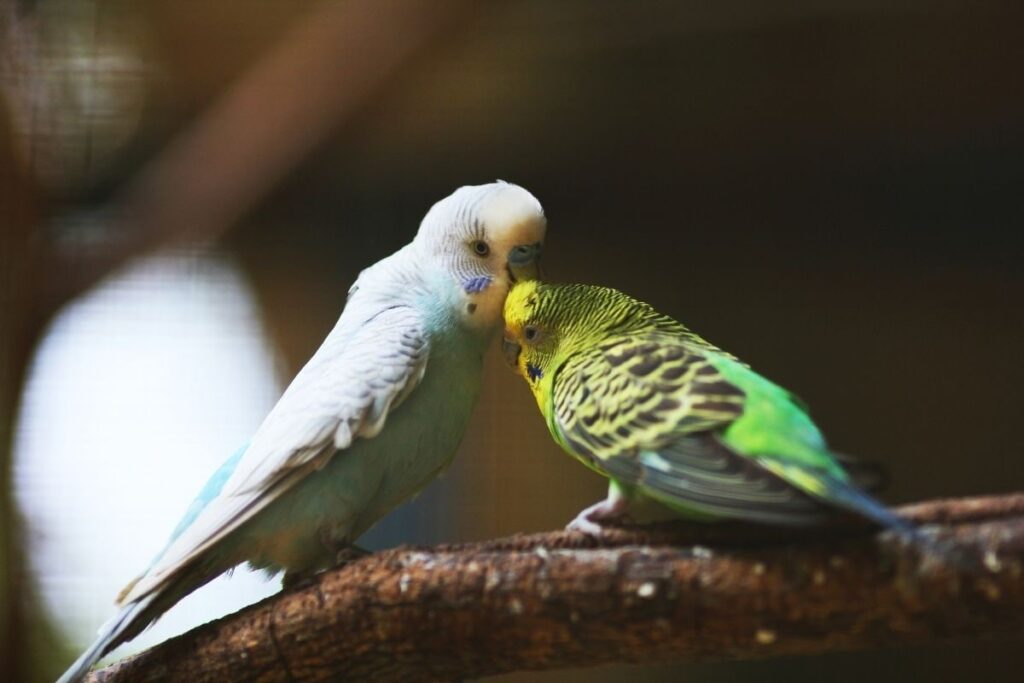
Another sign that your parakeet is pregnant is an increase in preening and picking of feathers. During pregnancy, female birds will often groom themselves more frequently than usual as they prepare for the arrival of their babies. This behavior can include preening, fluffing up feathers, and even plucking out some of her own feathers. This behavior is usually attributed to the hormonal changes that occur during pregnancy.
4. More Vocal Than Usual
In some cases, a parakeet may become more vocal as a sign of pregnancy. This can manifest in different ways such as:
- Increased singing or chirping – Female parakeets may become more vocal and start singing or chirping more than usual. This is a way for them to communicate their excitement of the arrival of their upcoming eggs and babies.
- Soft or quiet calls – Pregnant parakeets may also make soft or quiet calls, which can be a sign that they are feeling protective or nurturing towards their eggs.
- Vocalizing when touched – A parakeet may also start vocalizing when you touch their abdomen, which could be a sign of discomfort or tenderness caused by the eggs.
Parakeets are usually quite vocal birds, but during pregnancy they may become even more vocal than usual. This is because the hormones that are released during pregnancy can cause them to be more alert and active. As a result, they may chirp, sing, and call out more often than normal.
Additionally, you may also notice that your parakeet has a higher pitch to her voice when she is pregnant. This is due to the increased levels of estrogen in her body which can affect her vocal cords.
5. Displaying Mating Behavior
Mating behavior is another sign that your parakeet may be pregnant. Female parakeets will often engage in more mating behavior when they are expecting eggs. This can include increased activity, such as fluttering and flying around the cage, as well as increased vocalizations.
A female parakeet may start to solicit attention from male parakeets by puffing up her feathers, fluffing her head feathers, and making chirping sounds. Male parakeets may respond by puffing up their own feathers, singing, and displaying courtship rituals such as feeding the female.
6. A Swollen Vent (Egg Bum)
A swollen vent, or egg bum, is a telltale sign that your parakeet is pregnant. This is because the female’s abdomen will swell as the eggs develop inside her body. The swelling is caused by the hormones released during pregnancy and can be seen around the area of the vent, which is located at the base of the tail feathers.
The swelling may become more pronounced as the eggs get closer to hatching.
7. Exhibiting Affectionate Behaviors
When a parakeet is pregnant, they may exhibit more affectionate behaviors than usual. This can include preening and cuddling with their mate, as well as seeking out physical contact from their owners. They may also become more vocal and chirpy when around people, which is a sign that they are feeling content and secure in their environment.
Additionally, pregnant parakeets may also display increased levels of curiosity and exploration, which can be seen through them exploring new areas of the cage or perching on different objects.
If your budgie starts exhibiting any of these behaviors, there’s a good chance she is pregnant. These are also signs that your parakeet is feeling safe and secure in her environment.
8. Nesting Behavior
Female parakeets will often start to build a nest in preparation for the eggs. This can include gathering materials such as feathers, paper, and other soft items to line the nest. The female may also start rearranging her cage and perching on different objects in order to create a comfortable environment for her eggs.
She may become more protective of her nesting area and may even become aggressive towards other birds or animals that come too close. This is all part of the natural nesting instinct that female parakeets have when they are expecting eggs.
9. Increase in Appetite
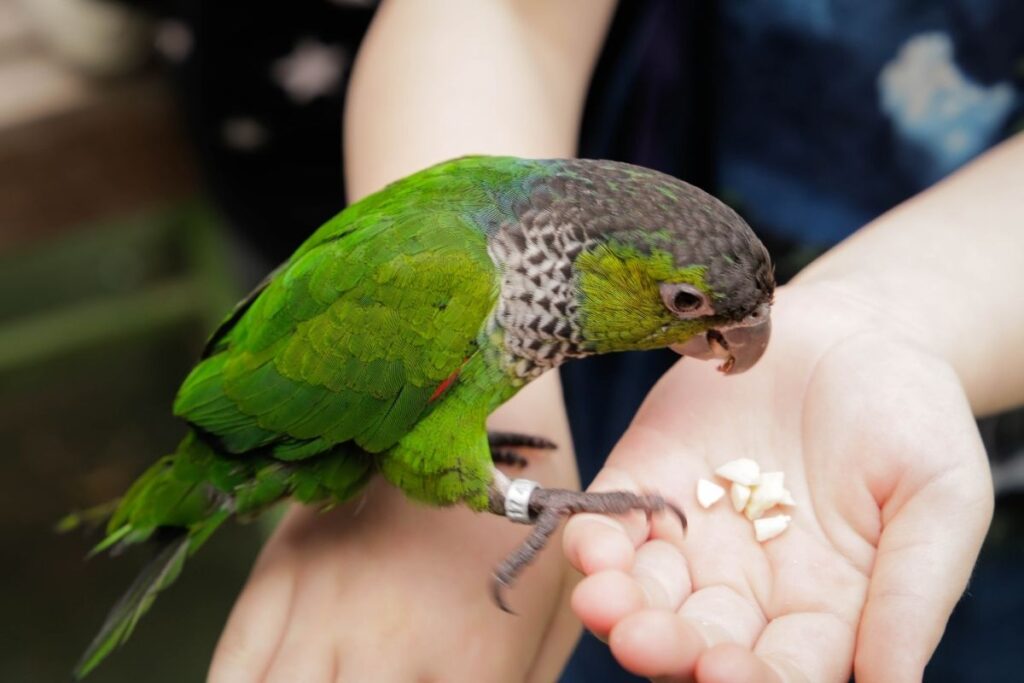
Pregnant parakeets will often have an increased appetite due to the extra energy needed to support their growing eggs. This can be seen in a sudden increase in food consumption, as well as an interest in different types of foods. Female parakeets may start to eat more frequently throughout the day and may even become more vocal when asking for food. Additionally, they may also become more interested in treats such as fruits and vegetables that they normally wouldn’t eat.
With all these in mind, it is important to provide your pregnant parakeet with a balanced diet that includes plenty of protein, vitamins, and minerals to ensure proper nutrition for her and her developing eggs.
How Long is a Parakeet’s Pregnancy?
A parakeet’s pregnancy typically lasts between 18 and 21 days. During this time, the female will lay up to eight eggs, which will hatch after an additional 18 to 21 days.
The female will do most of the sitting, but the male will take over for short periods so she can eat and drink.
Once the eggs have hatched, the parents will feed and care for the chicks until they are old enough to leave the nest. This usually takes about four weeks, but can vary depending on the species of parakeet. During this time, it is important to provide a safe and comfortable environment for the family.
Check out this article if you need more information on what to do when and after your parakeet has laid its eggs.
Once the chicks have left the nest, they will be ready to explore their new world!
Do Female Parakeets Have Menstrual Cycles?
No, female parakeets do not have menstrual cycles. Birds do not experience the same reproductive cycle as many other mammals do. Instead, they rely on environmental cues such as the amount of daylight and temperature to determine when they are ready to breed. Female parakeets will lay eggs when conditions are right, regardless of whether or not they are in heat.
However, they can become pregnant and lay eggs. Furthermore , female parakeets may also experience hormonal changes during the breeding season, which can cause them to become more aggressive and territorial.
Will Parakeets Get Aggressive During Pregnancy
Parakeets can become more aggressive when they are pregnant, as they may become more protective of their eggs and potential offspring. This is particularly true when the female is close to laying her eggs or when the eggs have already been laid. They may become more territorial and may attack anyone who comes near their nest or eggs. They may also become more protective of their mate during this time, and may start to chase others away if they get too close.
Final Words
It is important to remember that a pregnant parakeet’s behavior can vary greatly depending on the individual bird. While some may become more aggressive and territorial, others may remain calm and relaxed throughout their pregnancy. It is important to observe your parakeet closely during this time and provide them with a safe and comfortable environment so they can raise their chicks successfully. With proper care and attention, you can ensure that your parakeet has a healthy pregnancy and successful hatching of her eggs.



